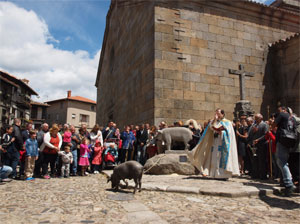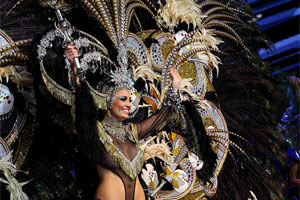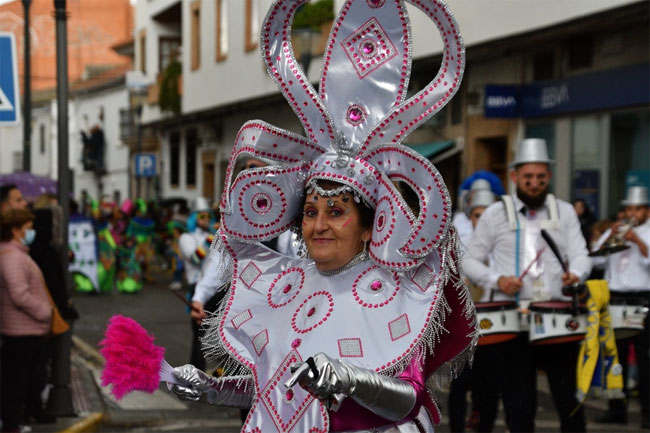El Marrano de San Antón

The Marrano of San Antón is a party or celebration, especially where a pig is released and transits free through the streets of the Alberca, after being blessed, from June 13 to January 17, when it is raffled among the inhabitants of the same locality.
What is the San Anton Marrano Festival?

The festivity consists in that on June 13, a pig is released through the streets of the town, to which a kind of bell is placed around the neck, after being blessed. It is baptized with this traditional name.
During the days of the festival, it will be free for seven long months and on January 17 it will be raffled among those attending the event.
In the past, the custom was for the residents of the community to bait the pig for several days and then donate it to the family with less financial resources in the area.
While this happens, the pig travels only through the streets and the neighbors are in charge of feeding and caring for it until the day of its delivery, where an auction is held and everything that is collected is used to carry out social works or directly donate them to an NGO.
It is customary to celebrate the feast of "San Antonio of Padua" before enhancing the blessing of the pig. According to tradition, the procession should not be absent, which begins in the parish church, where the mass was celebrated.
What is the origin of this holiday?
This tradition comes from the Jewish people, who made it popular in the Alberca region and was a way to publicize their religious position, which was oriented to Christianity and thus, not feel threatened by the inquisition.
During the 16th century, the Jews used the pig asa bait, fattened it for a few months and then killed it, and then collected their product and made a donation to the parish. With the passage of time, this has been happening every year for the good pleasure of all the locals.
This tradition has been so emblematic that the traditional pig already has a sculpture made of granite stone in the plaza called Solana Cimero.
How is the pig's draw carried out?
The draw is carried out among the people who attend the festivity through a raffle, where some ballots are delivered and the person who is the winner will keep the pig as a prize.
With the money that is collected from the sale of the ballots, it can be used to make charitable aid and it is given directly to an institution or NGO that helps social causes such as illnesses or people with disabilities.
The pig, in general, is donated by a company. The animal walks the streets of the town for seven long months. In all this time, it is fed and cared for by the inhabitants and also by the so-called Town Hall, which attends to the vaccines, cleaning and veterinary attention of the pig.
One thing that is curious to the visitor and the tourist who visits the town at this time, is to meet face to face with a pig walking loose on the streets, but that gives a funny and somewhat picturesque touch to the holiday.
This tradition, which is already part of Spanish culture, is world-renowned and during its celebration thousands of citizens and tourists from other countries wait long months to enjoy this special event.




